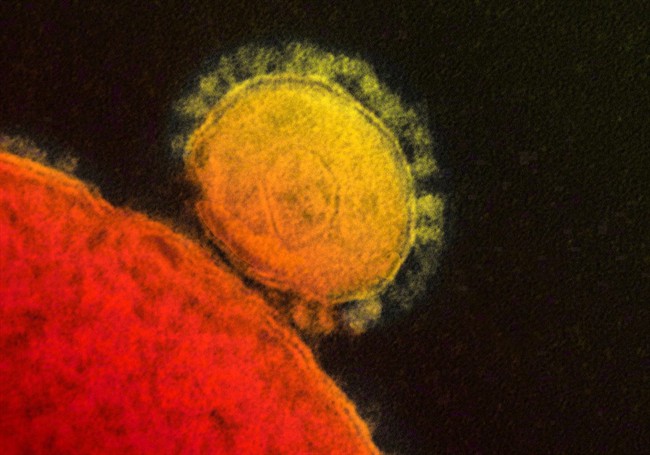Health officials in Spain have detected the country’s first case of MERS in a woman who recently returned from Saudi Arabia after attending last month’s Hajj pilgrimage.

The Spanish Ministry of Health said the woman was admitted to hospital in Madrid on Nov. 1 and is in stable condition. In its press release, the ministry said it is following up with people who were in contact with her to determine if others have contracted the sickness.
That will likely involve tracking people who travelled on the same plane or planes with the ill woman, who journeyed back to Spain shortly before being hospitalized.
READ MORE: The novel coronavirus: 9 things you should know about MERS
The woman was already sick before she left the Kingdom of Saudi Arabia, a World Health Organization expert said Wednesday.
“She became symptomatic while she was in KSA,” said Dr. Anthony Mounts, the WHO’s point person for the new virus, a cousin of the coronavirus that caused the 2003 SARS outbreak.
“We understand that she did perform the Hajj and came back and was admitted to hospital in Spain and was tested there.”
It appears the woman had some contact with the health-care system while in Saudi Arabia, but the details of that are not yet clear.
“I believe that she was checked, but I don’t think that she was so severe at that time,” said Mounts.
“I don’t know anything about whether or not they tested there. … That’s one of the things that we’re still trying to get information on.”
READ MORE: 2 new disease – H7N9 and coronavirus – could both spark global outbreaks
He also did not know if the woman flew on a commercial airline or on one of the charter flights used by many who travel to Saudi Arabia for the Hajj, the massive annual international pilgrimage that draws Muslims from around the world to their religion’s most sacred sites, Mecca and Medina.
This year’s Hajj took place from Oct. 13 to 18, though pilgrims started converging on Saudi Arabia in late September and typically many remain in the country for a period afterward. This woman is believed to have spent most of the month of October in the kingdom.
In fact, Mounts said it is possible that she contracted the virus after the pilgrimage was over, which would assuage fears that the event might seed MERS outbreaks in other countries too.
“The concern we had was that the Hajj would accelerate spread, that there would be transmission in the Hajj, during the Hajj itself,” he said.
READ MORE: French doctors say incubation for MERS virus may be 12 days, recommend longer quarantines
But if investigation of the woman’s case leads to the conclusion she became infected after the pilgrimage, her participation in the Hajj will turn out to be coincidental. “And if that’s the case, I think it’s a little less concerning,” Mounts said.
How people contract the virus is still a mystery, but Mounts said this case could provide some important clues.
“If she’s had some kind of different exposure than all of the other people who do the Hajj, particularly animal exposures, then we’d be very interested to know about it. That could be very informative.”
Countries elsewhere have been on the lookout for illness in their returning pilgrims.
In the past couple of weeks there have been a number of false alarms where people ill with flu-like systems were identified as possible MERS cases. But until now, all have tested negative for the virus.
READ MORE: Man who returned from Jordan is Italy’s 1st confirmed case of MERS virus
In fact, Mounts said earlier this week he felt the world might soon be able to conclude that the Hajj had not served as a transmission event to spread the virus from Saudi Arabia – which has recorded the lion’s share of confirmed cases – to other parts of the globe.
On Wednesday, he said it may be too soon to conclude that yet.
“I think it does give us pause,” he said of the case. “I think it means that we really do have to wait a little while longer before we’re sure we’re out of danger.”
With this new case, there have been 151 confirmed cases; 64 of those people have died. And at least 127 of those illnesses were contracted in Saudi Arabia.
READ MORE: SARS 10 years later: Doctors monitoring new coronavirus
All the infections to date have had their roots in the Arabian Peninsula, with Jordan, Qatar, the United Arab Emirates and Oman also reporting infections.
Several European countries – Britain, France, Germany, Italy and now Spain – have reported imported cases of MERS and in a couple of those countries the person who introduced the virus passed it on to one or two other people. Tunisia has also reported an imported case, a older man who infected two of his adult children.



Comments